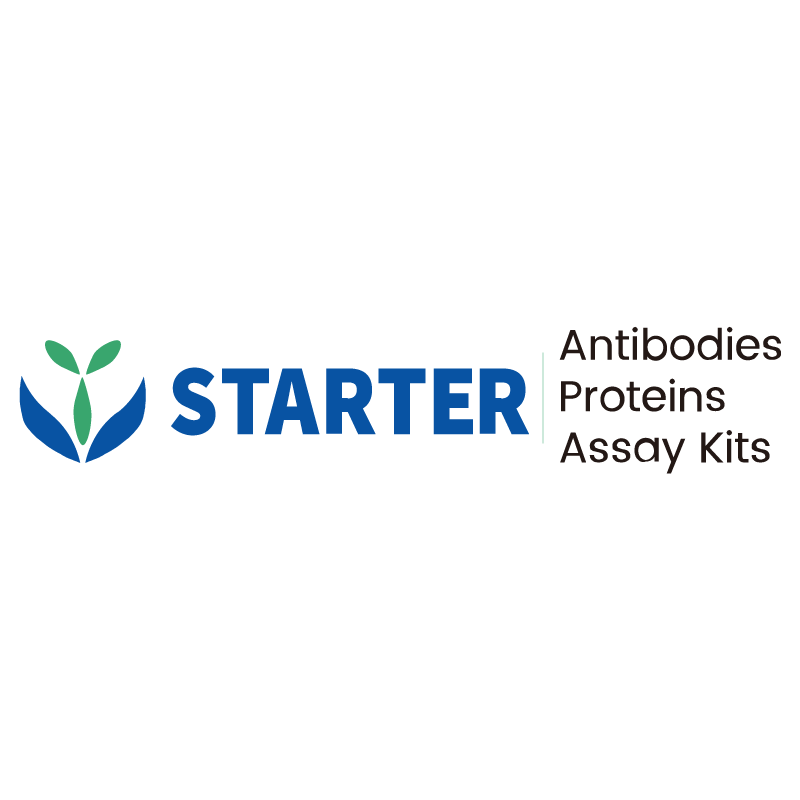2 μg(R: reducing conditions)
Product Details
Product Details
Product Specification
| Species | Mouse |
| Synonyms | Delta-like protein 4, Drosophila Delta homolog 4 (Delta4) |
| Accession | Q9JI71 |
| Amino Acid Sequence | Protein sequence (Q9JI71, Gly27-Ala532, with C-His tag) GSGIFQLRLQEFVNQRGMLANGQSCEPGCRTFFRICLKHFQATFSEGPCTFGNVSTPVLGTNSFVVRDKNSGSGRNPLQLPFNFTWPGTFSLNIQAWHTPGDDLRPETSPGNSLISQIIIQGSLAVGKIWRTDEQNDTLTRLSYSYRVICSDNYYGESCSRLCKKRDDHFGHYECQPDGSLSCLPGWTGKYCDQPICLSGCHEQNGYCSKPDECICRPGWQGRLCNECIPHNGCRHGTCSIPWQCACDEGWGGLFCDQDLNYCTHHSPCKNGSTCSNSGPKGYTCTCLPGYTGEHCELGLSKCASNPCRNGGSCKDQENSYHCLCPPGYYGQHCEHSTLTCADSPCFNGGSCRERNQGSSYACECPPNFTGSNCEKKVDRCTSNPCANGGQCQNRGPSRTCRCRPGFTGTHCELHISDCARSPCAHGGTCHDLENGPVCTCPAGFSGRRCEVRITHDACASGPCFNGATCYTGLSPNNFVCNCPYGFVGSRCEFPVGLPPSFPWVA |
| Expression System | HEK293 |
| Molecular Weight | Predicted MW: 56.8 kDa Observed MW: 75 kDa |
| Purity | >95% by SDS-PAGE |
| Endotoxin | <0.1EU/μg |
| Conjugation | Unconjugated |
| Tag | with C-His tag |
| Physical Appearance | Lyophilized Powder |
| Storage Buffer | Lyophilized from a 0.2 μm filtered solution of 0.2M PBS, pH7.4. |
| Reconstitution | Reconstitute no more than 1 mg/mL according to the size in deionized water after rapid centrifugation. |
| Stability & Storage | 12 months from date of receipt, -20 to -70 °C as supplied. |
Background
Delta-like protein 4 (DLL4) is a type I membrane protein belonging to the Delta/Serrate/Lag2 (DSL) family of Notch ligands. The delta gene family encodes Notch ligands that are characterized by a DSL domain, EGF repeats, and a transmembrane domain. Notch signaling is an evolutionarily conserved pathway that controls cell fate and is required in multiple developmental processes including vascular development, hematopoiesis, somatogenesis, myogenesis, and neurogenesis. Notch signaling is dysregulated in many cancers, and faulty notch signaling is implicated in many diseases, including T-cell acute lymphoblastic leukemia (T-ALL), cerebral autosomal-dominant arteriopathy with sub-cortical infarcts and leukoencephalopathy (CADASIL), multiple sclerosis, Tetralogy of Fallot, and Alagille syndrome. Inhibition of notch signaling inhibits the proliferation of T-cell acute lymphoblastic leukemia in both cultured cells and a mouse model.
Picture
Picture
SDS-PAGE


